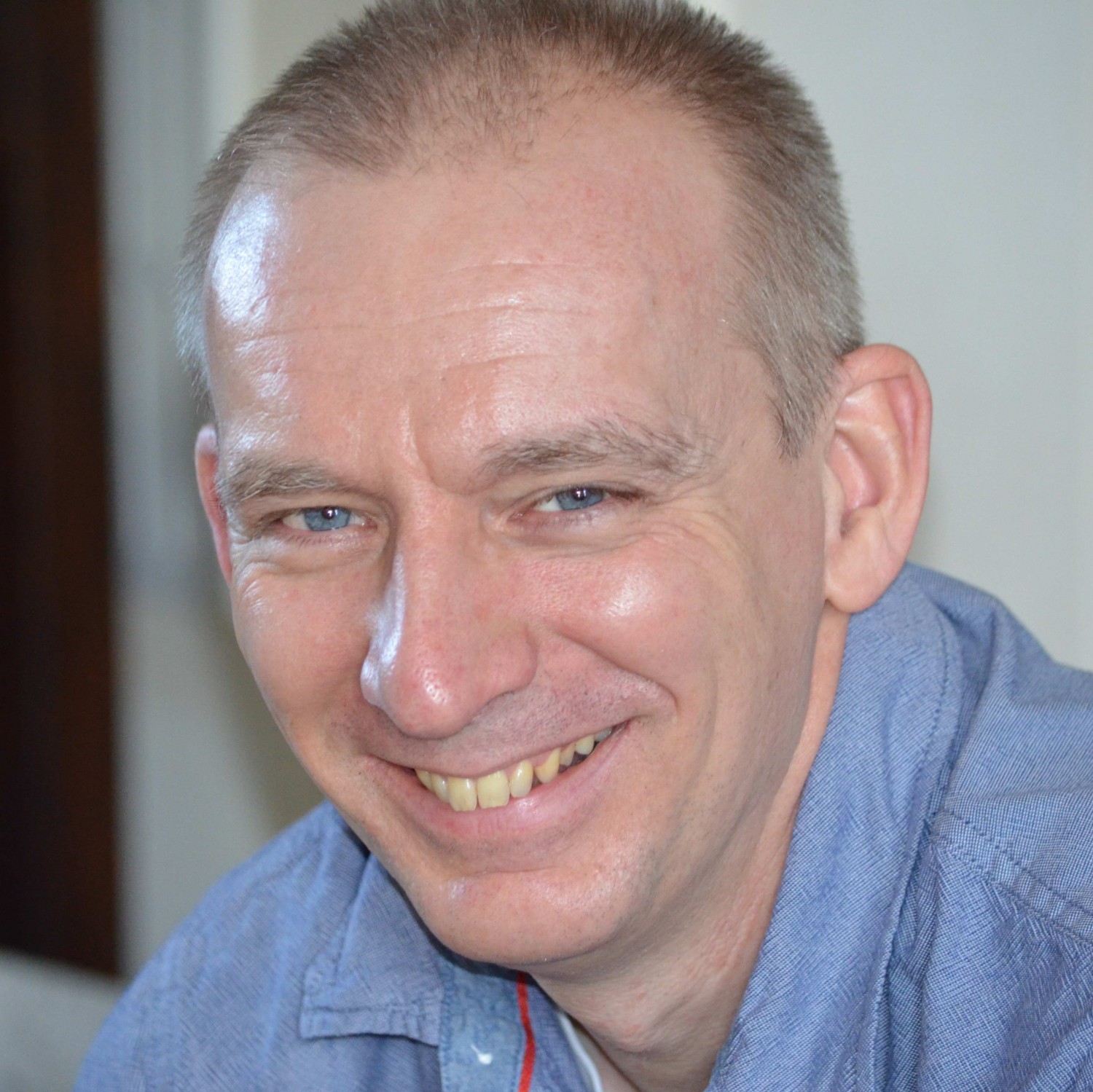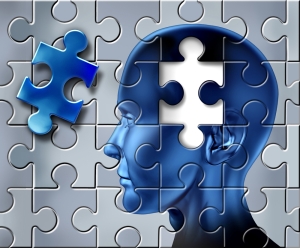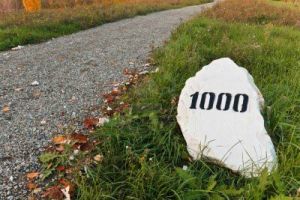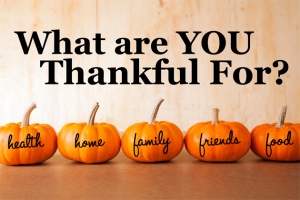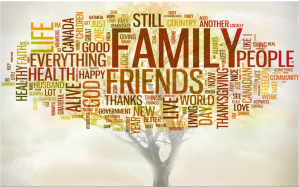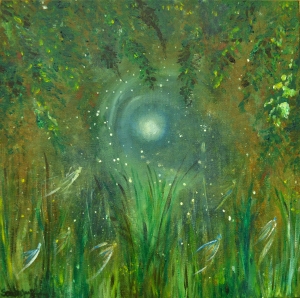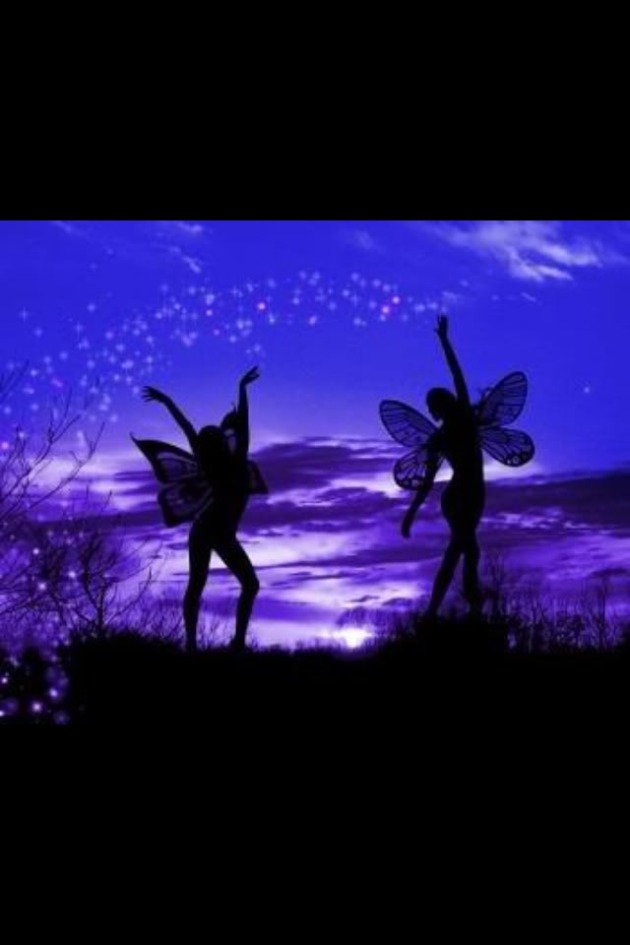Today is Fathers day. I’ll celebrate with my children, and I know that they have prepared and wrapped presents for me. But I won’t celebrate it with my own father. I saw him yesterday, but the grip of Alzheimer’s disease grows ever tighter on his misfiring brain. He was unable to comprehend what Fathers day is for. It was funny at the time as he asked me would I get presents too. I should be sad. But I am not. He has been caught between a place of muddle and confusion and a place of occasional clarity for some time, but the mental mist now softens things for him. He is less aware of what goes on around him, other than those things that affect him immediately. He is living in the moment more and more. I am not sad about that, because I would rather he be happy in his mist, than muddled and confused when it clears. He is less miserable for it, though he forgets much. So it is a very different Father’s day this year, and I suspect next year he will be unaware as to why he is being given presents, though he will delight at opening them as he did yesterday. My own children gave him cause to laugh and smile when we visited as he recognised their faces, but names – even his own – are sometimes difficult to recall. They spoke to him with much kindness and a generosity of understanding – an understanding that I find hard to give – and so the smiles that they brought to his face was the best Father’s day present they could have given me. For all those of you that find Father’s day a difficult day for whatever reason, I hope you can find something to smile about too. Perhaps for my father and for many of us it should just be a ‘Happy Day’ wish – every day.
Category Archives: Family
National Identity: Genetics, Ancestry and Rugby
National Identity and patriotism are important to most people. These are the things that make us feel like we belong. Things that give us a sense of being part of a bigger community – part of a team. This emotional response to belonging often comes to the fore in times of conflict when the shared identity serves as a rallying call of support. This is camaraderie – in peace time we see this most obviously in the international sporting arena.
Many people though have a mixed heritage, take Irish Americans and Italian Americans for example. They may have been born in America but they usually still retain a strong identity with the “old country” of their forefathers. As I write it is Saint Patrick’s day and Irish patriotism is hard to miss in the media, where anyone with the slightest Irish connection seems to be wearing a shamrock.
The same is true of West Indian, Pakistani, and Indian immigrants to the UK, while those born in the UK are deemed to be British, their ancestry and their cultural heritage are still that of their parents or grandparents countries of origin – something that has enriched the British communities that they have become part of for generations.
I have been investigating my own ancestry lately, in an effort to understand why I feel such a close affinity with my Welsh heritage on my mothers side. It’s not something new to me. In fact I have always been very conscious of the fact that I am part Welsh. I was born in England that’s true, but that doesn’t necessarily make me English – my mixed ancestry suggests otherwise. At best I am a product of Welsh and English genetics in equal measure, though it is more likely that my Welsh genes are the more dominant. My paternal grandfathers ancestry has been easy enough to trace back to the 16th century – all English. On my mother’s side of the family though it’s all Welsh. It’s no coincidence that I was christened “David”, after the Welsh national saint. My mother was born in Chester just across the border from Wales to Welsh parents, her father’s name was Rhys Powell Matthews and his lineage goes back many generations to South Wales – the surname Matthews originates from Glamorganshire from around the 15th century. The family tree on this side has names such as Gwilym, Olwen and Gwladys (my mothers name) in abundance. And of course many of my ancestors were coal miners – you can’t get more Welsh than that!
On a sporting level this identity ‘dilemma’ has been with me since I was a young boy when, in the 1970s, encouraged by my mother, I avidly followed the Welsh rugby team during the halcyon days of JPR and JJ Williams, Gareth Edwards, Barry John and the like. I remember watching them on TV and my mother telling me that I had a lot of Welsh blood in me. Then, as I became more involved in sport as a schoolboy I ended up representing England on the athletics track – no-one ever asked me if I wanted to represent Wales, probably because my school was in England! When the time came to go to University there was only one place I headed for – Wales. I was particularly drawn to South Wales and spent a fabulous three years in Swansea. I recently learned that my great great grandfather was born in Swansea. While at university I did represent Wales at sport – my ancestry made that possible, and I had no hesitation choosing to compete for Wales. As fate would have it I met and married a Cardiff girl, who is passionate about her Welsh ancestry: as a result our children are probably about 70 per cent Welsh and don’t share my identity crisis! Our numerous trips to the valleys to visit friends and family has served to foster an even closer affinity with Wales. Wales is a wonderful country, with a rich and assured collective national identity and, romantic though it sounds, it is a place where the people are warm and welcoming. It is also country that punches well above its weight on the rugby field – rugby is a way of life for most Welsh people. And anyone who knows me, knows that I am passionate about the game – perhaps that is also genetic?
This past weekend I have felt my ‘Welshness’ more keenly than I have done for a long time. I even learned to sing the Welsh national anthem in Welsh (albeit with the aid of some phonetics!) and belted it out with about sixty thousand other Welsh men and women a the Millennium stadium before the rugby match with Ireland. The atmosphere had a lot to do with it, but those spine tingling moments may also have been due to the genes asserting themselves on “home soil” – if I wasn’t at least partly Welsh I doubt that I would have felt the way I did while singing “Hen Wlad Fy Nhadau” (Land of My Fathers) at the top of my voice and proudly wearing my red shirt! Whenever I visit Wales it always feels like I am coming home. That has got to mean something.
The Welsh National anthem sung by a capacity crowd at the Millennium Stadium, Cardiff
For anyone outside of the UK this may all seem a bit strange, after all Wales and England are part of the United Kingdom. Wales is a principality and not a fully self-governing country in its own right. But that does not stop a fierce sense of Welsh national identity, built on centuries of history. We are a strange lot on this island, as the member countries of the UK we will, at times of adversity still collectively identify ourselves as being British, but at the same time, between ourselves, maintain our English, Welsh, Scottish or Northern Irish identity.
There is more history and more politics to do with the make up of the UK than I have space to write here, and that’s not really the point of today’s blog. What I really want to know is: am I Welsh or English? To be honest I don’t really know. I won’t ever play international sport again, so it doesn’t matter from that point of view, but if I did, all the rules say that I could choose whether to represent England or Wales. If you had to have a Welsh passport I imagine I would have dual nationality. So perhaps I can claim that anyway? Perhaps I am Anglo-Welsh. However that will just not be good enough when it comes to rugby, I can cheer Wales and England on against their respective opponents until they play each other – it is then that I find my national identity conundrum the most confusing. So for now I will continue to support both teams, and decide on the day who I support when they play each other – I know that’s a bit of a cop-out but it’s the best I can do for now!
Holding on to Dad
Alzheimer’s is a wicked and vicious disease. There are no two ways about it. No life threatening, debilitating, wasting disease has any redeeming features about it, but Alzheimer’s takes the biscuit in how it gradually engulfs a person, a personality, and an individuals individuality with it’s silent attack on the stuff of memories, speech and recall; with its unrelenting impact on relationships, robbing not just the sufferer of themselves, but robbing friends and family of the person they knew. The person who gradually changes, gradually withdraws, gradually disappears. And finally can hold on no longer.
My father is in the early stages of Alzheimer’s disease. Well, I say early stages, but the signs and symptoms have been there for two to three years, yet defied diagnosis until recently. My father is still there though, and he is still self aware, so he knows what is happening, he can’t necessarily put his fears and worries into words, but he doesn’t have to – I can see it on his face, I see it in the old man shuffle of this once proud and upright man. He clings on to dressing himself well, yet even that is beginning to wane, and for a man that put appearances above almost anything, this demise is cruel.
My father was a practical man. I use the past tense, because he has lost much of his ability to fix things and do things with his hands. He must find that loss hard to bear, he is so aware of it that he has begun to clear out his garage-cum-workshop and give various tools away – tools that have been his friends for fifty years or more. Tools that I grew up with. I will probably keep them, though I have no clue how to use many of them, but it doesn’t seem right to throw them away – it would be like consigning my father and his practical past to the waste basket. The time is coming when he will no longer be able to drive, and that final bastion of independence will be the hardest of all for him to give up, he knows in his heart that it will be soon, yet he clings to the car keys like a talisman. A lucky charm that keeps him independent, that staves off the march of the time driven disease that attacks him. He holds on.
Yet there are positive moments. Moments of sheer clarity that shine through his confusion and forgetfulness, like a beacon to the man that he was – to the man that he still is deep down. My father has given me much advice over the years, a great deal of it that I have not agreed with, an awful lot of which I have gone against – and to be fair my decisions have not always been bad ones when I have chosen not to heed him. Last week though, he gave me some advice that is probably his best ever. Discussing my job, and how hard I work, and the fact that I am now in my fifties, he told me that he took early retirement at the age of fifty-nine, because he just couldn’t stand the rat race any longer, he had run out of things to prove, he had been successful, made his money, and at almost sixty years of age he didn’t want to chase the numbers any longer. He said to me “when you recognise that time is coming for you, put your financial affairs in order, do not ponder too long, and just let it go”. If you knew my father you’d realise how significant his words were, as he has never been one to obviously plan in that way, he is always caught up in practicalities and just “doing stuff”, so to express advice that is more about quality of life is quite unusual. And that advice may have come with regrets, you see (and if you read my very first post on this blog you will know) my father lost his wife in April 2014.
My father and I have discovered a new trust, a new way of relating to each other. While I, and my sisters, have to do much for him, he trusts us to do that. He trusts me in ways that I never thought he would, he trusts that we will care for him and make sure he is cared for, of course he fights tooth and nail if he feels we are doing anything that erodes his independence, but ultimately he has trust in our decisions made on his behalf. He still relates to me as his son, but we hug now, and he expresses his love more now than he ever has, he seems prouder of me now than at any other time of my life. Of course he gets angry, he gets stubborn, and he gets frustrated – but honestly, who wouldn’t?
Fortunately or unfortunately, depending on how you look at it, because of my profession I know much about Alzheimer’s, how it progresses, what the disease does, how treatments work (or don’t work). So I know what is to come, but I know that he will hold onto his self awareness as long as he can, though I also know that he will ultimately lose himself as the disease envelopes him. As we watch this uncomfortably unfold, we manage his life for him, and we hold onto those moments of clarity, wisdom and advice, just as we treasure family photographs as memories of happy times, we will cling to words as well, because that is how you hold onto the person in those photographs.
Despite what I know, I look for the positives as well as accepting the inevitability of his decline. Learned behaviours are often the last to be affected, so he can still teach us the basics of ballroom dancing, an echo of his and my mothers dancing past (they once danced on the TV programme “Come Dancing” in the 1960’s) – and we have a had a few laughs doing that. He practices the piano twice a day, an instrument that he has played since he was a young boy, and he can still read new music, we’ve played boule and his hand-eye co-ordination learned and developed in his county cricketing days is still there – I am the only one who can beat him – because as a youth he taught me to be an even better cricketer than he was.
So I still have my father. He’s there. Sometimes the best of him is buried beneath the fuzziness of the low moments of the disease. Other times he rises above the disease and we have more of him.
Hold on Dad, just hold on as long as you can.
Milestones
Last month my blog clocked up one thousand hits. I was quite surprised at how pleased I was with reaching that milestone. This got me looking back at all of my posts to see which had been the most read, and I realised that, with the exception of the “cooking trilogy”, every post I have written is related to some milestone or other (I suppose family meals could be milestones too!). Why is this? – I wondered.
Perhaps it is because I tend to measure my life by those milestones – I know many people who do the same, perhaps we all do to a degree. Each marker in time is some kind of right of passage to another stage, another chapter, of our constantly unfolding lives. I actually get annoyed with those count downs to milestones, as I see that as wishing one’s life away.The Christmas countdowns that start well before December are one such annoyance, wishing time away just seems plain wrong to me – we have only one life in this world, so why wish for it to pass more quickly? Like most people I’ve experienced times when I have wished time would pass more rapidly and give way to better times, but now those better times are here I don’t want the days and hours to flash by. Father Time though seems to have a wry sense of humour and, as the skilled illusionist that he is, gives the appearance of life passing slowly when things are tough, but speeding it up when life is good.
Looking back at my blog posts, which only started in June 2014, the milestones are a combination of personal and societal. The death of my mother and the death of a good friend were two events that put life into sharp relief, a time for evaluation and re-evaluation of my own values, needs and desires. That’s when I began to write again and I have marked days of inspiration, reaching 15,000 words in my book (20,000 now!), and now one thousand hits on my blog; these are small achievements, yet they mark my passage towards something I’ve always hoped for – some form of literary achievement. I haven’t recorded every milestone of course – that might be a little tedious for anyone who reads my blog – but also some of these milestones are best kept private, so for example I’ve not recorded the details of my son’s departure for university and my daughter’s theatrical and musical exploits, they are things we talk about as a family, and that’s where the details stay – within our family.
Milestones though can be about more than just personal achievement or marking the (hopefully) happy progress of our lives. Some milestones are marked on a national, and even global scale, there are some that will always be commemorated. In this blog I have written about the anniversary of D-Day and the observance of Remembrance Sunday – both all the more poignant as 2014 marks the 100th year since the outbreak of the first world war and seventy years since D-Day. Our nation marked those milestones with great respect. But they are still just that – milestones, they mark a point reached and another years distance from the real events, and the milestones become history themselves.
On a more upbeat note our US cousins have just celebrated Thanksgiving, a major annual milestone, and a time for friends and family to meet and give thanks for each other and what they have been blessed with. A positive and reflective milestone. Soon we will celebrate Christmas and then New Year, traditionally times when we look back at the previous year and it’s milestones.
Milestones become history the moment after they are reached. I am reminded of possibly one of the finest lines from a contemporary play, from Alan Bennet’s “The History Boys”, it is spoken by the pupil Rudge, who up to this point has been mostly monosyllabic: “How do I define history? It’s just one fucking thing after another”. It is a line played for wry laughs in the play, but of course it is true. History, is merely a sequence of events that occur in succession – whether that is our personal history or society’s. If we can do our utmost to make sure that “one thing after another” is made up of positive actions,valuable achievements, and enriching behaviours, for ourselves and those around us, then our personal histories we will have a strong influence on our society.
Perhaps there is a moral in here somewhere, and as we approach the end of 2014, for me that moral might be that in 2015 I am going to do “one good fucking thing after another”.
Note: Apologies if the expletive causes any offence, however it is a direct quote and loses it’s impact and emphasis if censored.
Thanksgiving: what’s the big deal?
I’ve never understood Thanksgiving. Or to be more accurate, as a “Brit”, even though I’ve visited the USA many times, worked with American colleagues and have many American friends, I have never been able to fathom why the Thanksgiving holiday is such a major event, possibly even eclipsing Christmas in its national importance and observance.
I’ve read about the origins of Thanksgiving, the debate about how it came to be, the influence of the English reformation and the puritans, the possible connections with the Dutch concerning the siege of Leiden (1573), the suggestion that the holiday has its roots with the early pilgrims in Plymouth, Massachusetts, fabled tales of feasts between pilgrims and Native American Indians, the Unionist rationale for fixing the date and so on. But nothing really explains why Thanksgiving has the national importance and significance that it does. Other countries have Thanksgiving holidays, but on the whole they are celebrated to a lesser extent than in the USA. Is it a holiday that exists solely to give thanks for the Harvest? In a country as vast as the USA surely harvest time varies depending on where people live and therefore so would their periods of thanksgiving. It is certainly nothing like a traditional harvest festival in Britain which, while a notable Christian celebration (particularly in rural farming communities like mine), is not a national holiday nor as major an event as Thanksgiving – maybe it should be. Harvest has it’s place in Thanksgiving – that much is clear – but it appears to be much more than a glorified harvest festival. And maybe it is because of that, that the religious and secular observance of the holiday is united.
If I’m honest, I am actually a little envious of Thanksgiving. From my observers perspective it seems to be a holiday that has retained a genuine meaning, relevance and significance that transcends belief systems (although what that meaning is founded on is still unclear). Of course it has it’s commercial elements – I’ve been to the Thanksgiving sales – but at its heart Thanksgiving seems to be a holiday of, well, Thanksgiving. I’m not sure it really matters that much what you are giving thanks for, whether it is the harvest, your family, home, community, and friends, maybe it’s giving thanks for your country and your freedoms.
In Great Britain, despite our long and vast history, we actually do not have a day like Thanksgiving, nor for that matter do we have a day like Independence Day; it would be a whole other discussion to look at the make up of the holidays in Great Britain and their origins, but we do not have a day where we celebrate who we are, or a day that we give over to giving thanks. As British citizens I fear that we may be morally poorer for a lack of a Thanksgiving celebration; for we too have much to give thanks for.
So tomorrow, when my usually hectic afternoon of telephone calls and video conferences with my US colleagues will be strangely quiet, I will pause for a moment and make sure that I give thanks for the things that I might otherwise take for granted. I will of course also enjoy the peace and quiet (maybe I should give thanks for that too!).
To all my American friends, colleagues and readers, I wish you all a very happy Thanksgiving holiday.
Shooting Stars
I have struggled to write something for this month’s blog entry. Not because I have nothing to write about, but because everything I have started to write has ended up being some self-indulgent waffle. I started to write about ‘change’, because change is happening all around me right now: after years of hard study, my son has just started University; my daughter has landed a lead role in her senior school production; my sister is embarking on an exciting new venture as an artist, and a good friend was recently ordained. I was going to write that ‘change is a good thing’; ‘we should embrace change’; ‘change is exciting’. I was going to write that ‘sometimes when lots of change is going on around us we can feel like a stationary object with shooting stars of change coming at us from all directions, and we just have a moment to see them before they pass us by.’
Then I realised where all this was coming from. My own pace of change has slowed considerably. I was recently approached by two headhunters for senior roles in my industry, and I turned them down flat. Ten years ago, even five years ago, I would have ruthlessly followed up. In my field of expertise it is not unusual to change jobs every few years, from the age of late 20’s until early 40’s the average tenure is probably something in the region of three years. My own average since I was 28 (excluding two periods of freelance work) is two years and four months, and as I have now been with my current employer for more than three years typically I should be looking for my next move. But I am not. For the first time in a long time, I don’t want to move. I enjoy my job, have an enviable work/life balance, a boss who gives me complete autonomy (but is there when I need him), and a loyal hard-working team that I have built and developed.
So why am I feeling like I am surrounded by shooting stars? It is because I am. All of those I mentioned earlier are taking their opportunities and making the most of them, they are moving at a much faster pace than I am. That’s how it should be. We cannot all be in a constant state of rapid change – we’d go crazy if there were not things or people that we could rely on, or if our own lives didn’t stay relatively stationary for long enough for us to decide what we wanted, or to recognise a new opportunity when it arises. But human beings, on the whole, are progressive creatures by nature; we crave new things, new experiences, and new challenges. But we are also creatures that can appreciate what goes on around us, whether that is art, theatre, literature, sport, music, the natural world, or technology advances in areas such as science & medicine. We can also appreciate the beauty of change in others. I listened to my son, offering a little advice when needed, as he carefully chose which university he wanted to go to, and what course to study, and then watched him apply himself to his studies, achieve his grades and get where he wanted to be, I’ve watched as my daughter has continued to expand her creative horizons and will now be one of the youngest leads ever in her senior school play, I’ve seen how amazingly creative my sister is (the illustration on this page is one of her paintings), and I’ve watched from a distance as my lovely friend Wendy was ordained into the priesthood, after agonising over her calling. All that time I have had the advantage of being relatively stationary – I’ve been the constant this time. As a result I have a completely different perspective than these shooting stars and, if I watch closely and carefully enough, I can see them approaching, their lights growing ever brighter, and when they come close to me they are dazzling, but unlike celestial shooting stars, they are not gone in an instant and fade to nothing, if I choose to I can hold them for as long as I like in my gaze as they approach, and watch them grow bigger, brighter and more brilliant.
It is a true privilege to be standing relatively still while I take in all this change. It is also a lesson in not being too hungry for change all the time. No doubt my time for change will come again and hopefully I will be someone else’s shooting star. But, right now, I am more than content to gaze upon those stars around me.
.
I Believe in Fairies
We don’t have that many watershed moments in our lives, those moments that change everything forever. April 24th 2014 was one of mine. That’s the day that my mother died. She died suddenly and unexpectedly. I wasn’t ready for it. I don’t think she was either. I miss her. I miss her voice, I miss her argumentative nature, I miss her occasional spoonerisms, I miss her wit, but most of all I miss her laughter. My mum taught me much, she taught me tenacity, she taught me the value of hard work, she taught me to fight against those who said I ‘couldn’t’, she taught me to be fierce but also when to back down gracefully (though to be fair we both found that last one a challenge). I see that self same tenacity and work ethic in my own son – overcoming his dyslexia to become an intelligent and able student. We passed it on, mum.
It’s a watershed because I have started to write again, the emotions of the last few weeks needing an outlet. I started to write stories and poems ‘proper’ when I was nine years old. That was mums doing – with little education herself she still spotted my love of, and perhaps a little talent for, writing and language. She encouraged me, took me to see Shakespearean plays, and helped me choose which authors to read based on my emerging tastes. I read, or was read to, every day of my childhood, my room was a bookcase, a bedroom-cum-library. Mum learned with me as I read more and more, and we discussed everything from the great poets to the popular authors of my childhood. We learned together. At ten years old I was published in a local poetry anthology for children. I won a prize for it – it was a gift token – I bought a book. I’ve been buying books ever since, there isn’t a room in our house without a bookcase – we have nine of them I think, some with books double stacked, plus around a dozen boxes of books in the attic. I still read a great deal, and discuss the great poets and authors of our time with my daughter – I learn as she learns. We passed it on, mum.
It is a watershed, because now I have to face the rest of my life with all of those things she was as just memories; we can’t reminisce on those old shared experiences ever again. Mum and I didn’t see each other every week, nor even every month, but her influences were always there. We had our differences, sometimes heated ones, but we shared that unique mother/son bond as well as that unique mother/first born bond. We were special to each other in a way words couldn’t describe, if we fell out we would both be tearful. It’s a watershed, because at fifty years old I finally have to grow up. Mum’s not there to talk to now, not there to counsel, or to debate, argue and disagree with, she’s not there to be the arbiter of family disagreements. I’m the grown up now. I don’t want to grow up. Not yet.
But as I was writing I realised that part of my mums enduring charm and spirit was that she never truly grew up. She could, of course, act grown up when convention dictated. But she never yielded to having to fully grow up. She still did the things that she wanted to do, the way she wanted to do them, no matter if they seemed childish or even a little foolish to others. Thats what made her so creative. On the day that she died she had been teaching herself to paint with water colours. She painted fairies. She loved fairies and truly believed that they existed, which seems quite childlike, and perhaps it is – but that’s the point of refusing to grow up isn’t it? – to still look at things with a childish wonder and to believe in the fantastical – and that captures the essence of my mum, her readiness to see things as a child might.
I have a lot to thank my mum for; for passing on the gifts of tenacity and doggedness, thanks for passing on the gift of literary exploration, but most of all thanks for not growing up, thanks for showing me that you don’t have to grow up in everything. Thanks for believing in fairies. Perhaps if I believe in fairies too this watershed won’t be so bad. I believe in fairies.
